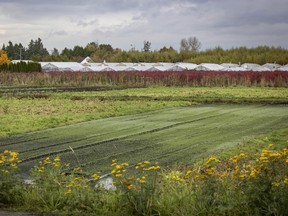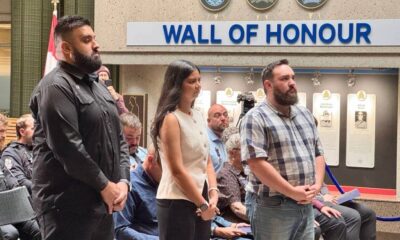Politics
B.C. Supreme Court Ruling Sparks Concerns Over Aboriginal Title

The recent ruling by the British Columbia Supreme Court regarding the Cowichan Nation has raised significant concerns over the relationship between Aboriginal title and private property rights. The decision has left many residents and landowners feeling uncertain about the implications for their rights and the broader economic landscape in British Columbia.
The court’s ruling is complex, reflecting longstanding legal questions that have been part of B.C.’s history. The provincial government, through statements from Attorney General Niki Sharma and Minister of Indigenous Relations and Reconciliation Spencer Chandra-Herbert, has expressed strong disagreement with how the court addressed private property rights in this case. They emphasize that respecting Aboriginal title does not mean disregarding the rights of private property owners.
March 2024 marks a pivotal moment as the B.C. government announced its intention to appeal the court’s decision. This move was quickly followed by similar announcements from other affected parties, including the Tsawwassen and Musqueam First Nations, as well as the federal government and the City of Richmond. Collectively, these groups are seeking clarification on the ruling, which they believe raises complicated legal issues that need to be resolved by a higher court.
The provincial government has reiterated its commitment to maintaining a balance of respect for Indigenous rights while simultaneously protecting private property. Sharma and Chandra-Herbert highlighted that this approach has been the cornerstone of their reconciliation efforts. They pointed out that previous agreements, such as the historic land title agreement with the Haida Nation, have proven that it is possible to safeguard both Indigenous rights and the interests of private landowners.
Looking at recent successful partnerships, they cited the Red Chris Mine expansion with the Tahltan Nation and the development of Cedar LNG with the Haisla Nation. These projects showcase how collaboration can lead to economic growth, creating thousands of jobs and supporting local economies. The ministers argue that without constructive dialogue and negotiation, the province risks descending into a cycle of legal disputes, which could hinder economic progress and create further uncertainty in communities.
The government remains open to discussions with the Cowichan Nation, emphasizing that enduring solutions are best achieved through dialogue and mutual respect. The ministers believe that fostering a collaborative environment will help build a stronger and more prosperous B.C. for all residents.
As this legal situation develops, the government’s stance is clear: it aims to protect private property rights while respecting Indigenous claims, fostering a cooperative approach that ultimately benefits everyone involved. The ongoing dialogue and negotiations will be critical in shaping B.C.’s future as it navigates these complex legal landscapes.
The path forward is one that all parties must tread carefully, as the stakes are high for families, communities, and the economy of British Columbia.
-

 World3 months ago
World3 months agoScientists Unearth Ancient Antarctic Ice to Unlock Climate Secrets
-

 Entertainment4 months ago
Entertainment4 months agoTrump and McCormick to Announce $70 Billion Energy Investments
-

 Lifestyle3 months ago
Lifestyle3 months agoTransLink Launches Food Truck Program to Boost Revenue in Vancouver
-

 Science4 months ago
Science4 months agoFour Astronauts Return to Earth After International Space Station Mission
-

 Technology2 months ago
Technology2 months agoApple Notes Enhances Functionality with Markdown Support in macOS 26
-

 Top Stories2 weeks ago
Top Stories2 weeks agoUrgent Update: Fatal Crash on Highway 99 Claims Life of Pitt Meadows Man
-

 Sports3 months ago
Sports3 months agoSearch Underway for Missing Hunter Amid Hokkaido Bear Emergency
-

 Politics3 months ago
Politics3 months agoUkrainian Tennis Star Elina Svitolina Faces Death Threats Online
-

 Technology3 months ago
Technology3 months agoFrosthaven Launches Early Access on July 31, 2025
-

 Politics3 months ago
Politics3 months agoCarney Engages First Nations Leaders at Development Law Summit
-

 Entertainment3 months ago
Entertainment3 months agoCalgary Theatre Troupe Revives Magic at Winnipeg Fringe Festival
-

 Politics2 weeks ago
Politics2 weeks agoShutdown Reflects Democratic Struggles Amid Economic Concerns





















